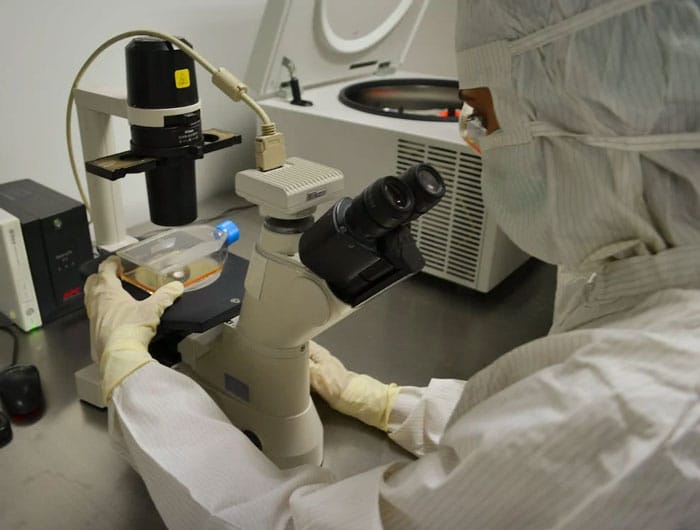
This post provides detailed information on the clinical laboratory assistant job description, including the key duties, tasks, and responsibilities they commonly perform.
It also highlights the major requirements you may be expected to perform to be hired for the clinical laboratory assistant role.
What Does a Clinical Laboratory Assistant Do?
Clinical laboratory assistants are healthcare professionals who collect and analyze samples of bodily fluids and tissues.
The clinical laboratory assistant job description entails assisting laboratory managers in the diagnosis and treatment of diseases and illnesses.
Clinical laboratory assistants in performing their duties collect and process physical specimens such as blood, urine, and stool in order to diagnose a disease.
They operate toxicology instrumentation to identify or determine the concentration of toxic substance in a blood sample.
They also perform manual tests to determine levels of alcohol/carbon monoxide in the blood.
Clinical laboratory assistants carry out tests to determine if an infection is bacterial, viral or fungal.
They conduct hematology tests to ensure transfusion patients receive compatible blood type.
They also prepare and maintain accurate blood bank database for easy retrieval of transfusion information.
Usually, these laboratory assistants ensure compliance with correct laboratory procedures, policies, and guidelines.
They ensure efficient performance of equipment by facilitating repairs, maintenance, and proper calibration.
Their role also involves maintaining work area, ensuring they are clean and orderly.
As part of their responsibilities, clinical laboratory assistants alert laboratory managers, physicians or pathologists of critical patient conditions.
They prepare reports of laboratory operations and submit to the public health department and to other healthcare authority as required.
Their work description also entails overseeing the sorting, labeling, and logging of specimens.
Assistants utilize specialized instruments and devices such as spectrophotometer, x-ray, and microscope in the diagnosis and treatment of patients’ illnesses.
They often represent test data in graphs and charts when issuing reports.
They also observe asepsis protocols when collecting and handling blood or tissue specimen.
Clinical laboratory assistants monitor testing procedures to ensure compliance with set quality control measures.
They also maintain patient confidence by keeping test information confidential.
The clinical laboratory assistant job requires an Associate’s or Bachelor’s degree in medical technology, biology, or in a related life science discipline.
Some of the major qualities necessary for success on this job include attention to details, analytical and computer skills.
Clinical Laboratory Assistant Job Description Example/Template
Clinical laboratory assistants perform various functions in assisting laboratory managers to be effective on their job.
Here is a job description example detailing the major tasks, duties, and responsibilities of the position in most medical facilities:
- Set up, calibrate, and maintain laboratory equipment to ensure efficient performance
- Collect and analyze body fluids such as urine and blood to detect pathogens
- Utilize specialized electrical and mechanical devices such as microscopes, densitometer, and spectrometer to conduct analysis
- Conduct blood tests to determine the compatibility of a blood type for transfusion
- Prepare and forward results of laboratory analysis to physicians, pharmacists, and other healthcare professionals for decisive action
- Ensure blood samples are collected and handled in observance of asepsis principles
- Inoculate fertilized eggs, broths, and other culture medium with microorganism
- Cut, stain, and mount tissue specimens for pathological examination
- Conduct tests to determine chemical combination necessary for the preparation of vaccines and serums
- Prepare standard volumetric solutions of reagents required for chemical analysis of specimen
- Conduct qualitative and quantitative tests on finished products to determine actual makeup of a substance
- Ensure adherence to correct testing policies, procedures, and health regulations
- Maintain an up-to-date knowledge of industry development, trends, and recent lab techniques
- Ensure they protect patient information to uphold confidentiality agreements
- Conduct research on specific topics to gather and obtain relevant information.
Requirements – Skills, Abilities, and Knowledge – for Clinical Laboratory Assistant Job
To work as a clinical laboratory assistant requires meeting certain employer requirements.
Shown below are major things to have to be qualified for the job by most employers:
- Education and Training: To become a clinical laboratory assistant, you require a Bachelor’s degree in medical technology or biology, or in a related life science discipline. You also require certification from recognized bodies such as the American Society for Clinical Pathology (ASCP)
- Attention to detail: Clinical laboratory assistants are careful and precise with test reagents and samples to ensure unbiased results
- Analytical Skills: They are proficient in conducting various tests and analysis on specimen to identify pathogens
- Computer Skills: They are well versed in using computerized systems to perform clinical tests on samples.
Conclusion
This post provides a sample clinical laboratory assistant job description you can apply as a template when you need to make a work description for the position for hiring capable individuals for the role.
If you are a job seeker interested in this position, this post also helps to increase your knowledge of what clinical laboratory assistants do, thereby enabling you to succeed on the job when hired.












